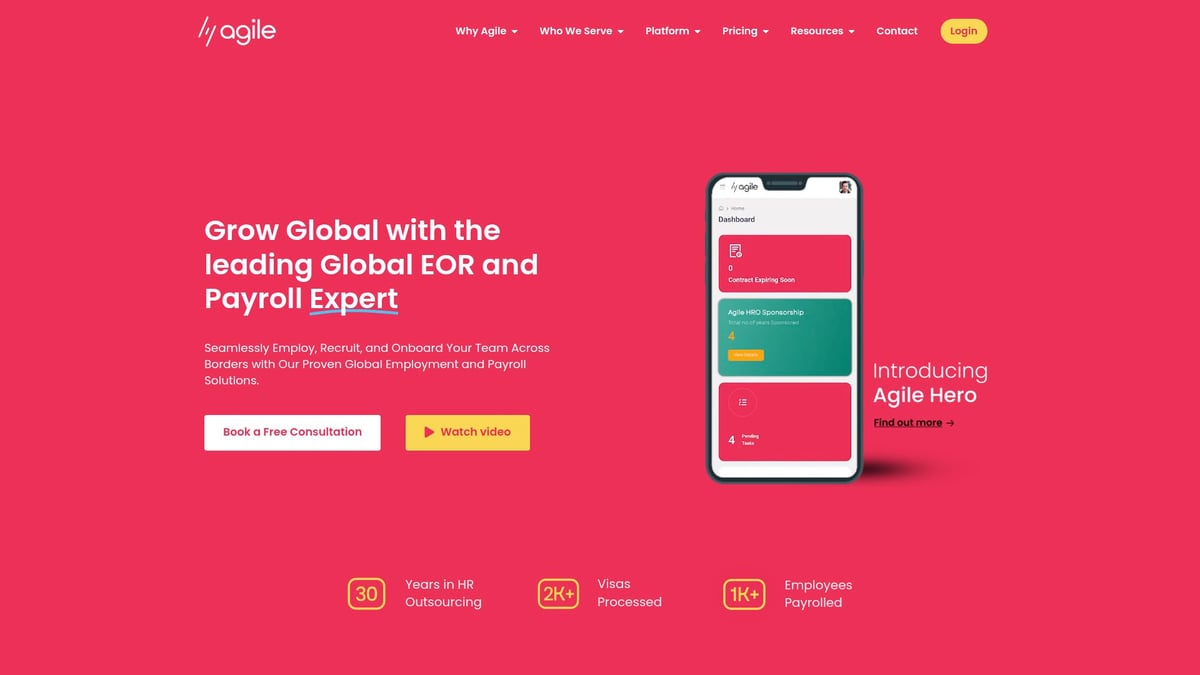In 2025, organizations face an unprecedented pace of change, and Human Resource Management stands at the center of this transformation. The pressure to innovate HR practices has never been greater as new trends and technologies redefine how businesses compete.
Forward-thinking companies know that mastering the topic of human resource management is essential for success. This guide is your roadmap, offering practical strategies, emerging technologies, and up-to-date compliance tips for HR professionals.
Get ready to explore the evolving roles of HR, digital transformation, talent acquisition, employee experience, compliance, and the future trends shaping workplaces worldwide.
The Evolving Role of Human Resource Management in 2025
The topic of human resource management is experiencing a transformation in 2025. HR leaders are stepping out of the back office and into the boardroom, shaping the very DNA of organizations. With every shift in the business world, HR’s influence grows—guiding companies through change, uncertainty, and opportunity.

Shifting from Administrative to Strategic Partner
Once known for paperwork and payroll, HR now plays a pivotal role in business strategy. In the topic of human resource management, professionals are architects of organizational culture and drivers of major change initiatives. For example, HR teams today lead company-wide transformations, ensuring that goals and values align at every level.
| Traditional HR Tasks | Strategic HR Leadership |
|---|---|
| Payroll processing | Culture shaping |
| Benefits admin | Change management |
| Compliance tracking | Talent strategy |
Emphasis on Diversity, Equity, and Inclusion (DEI)
DEI is now at the heart of the topic of human resource management, with 78% of companies making it a top priority in 2025 (source: Gartner). Modern HR teams design initiatives that foster inclusive hiring, ensure pay equity, and create accessible workplaces for all.
- Inclusive recruitment campaigns
- Transparent pay audits
- Workplace accessibility programs
For more on current HR priorities and trends, see HR Statistics and Trends for 2025.
Data-Driven Decision Making
The topic of human resource management is driven by data more than ever. HR analytics help leaders make informed decisions about workforce planning and performance. Predictive analytics, for instance, allow organizations to spot turnover risks early and boost engagement with targeted actions.
Agile HR and Organizational Flexibility
Agile methodologies are transforming HR, enabling rapid adaptation to market shifts. Companies adopting agile recruitment have reduced time-to-hire by up to 40 percent. In the topic of human resource management, this flexibility means HR can support new business models and help teams pivot quickly.
- Cross-functional hiring squads
- Iterative feedback loops
- Fast-tracked candidate pipelines
Employee Wellbeing and Mental Health
Employee wellbeing has become a central focus in the topic of human resource management. HR teams are expanding support beyond physical health, introducing mental health days and digital support resources. These efforts foster a culture where employees feel valued and supported.
- Mental health days
- Virtual counseling services
- Wellness app subscriptions
Globalization and Remote Workforces
Managing a global workforce is now the norm, not the exception. Sixty percent of organizations operate with distributed or hybrid teams (source: Deloitte). The topic of human resource management involves navigating cross-border compliance, local labor laws, and cultural differences to ensure seamless collaboration.
HR’s Role in Sustainability and Social Impact
HR is leading the charge on sustainability and social impact initiatives. By integrating ESG goals into HR strategies, companies demonstrate their commitment to the planet and society. HR teams often spearhead corporate social responsibility programs, making a real difference in their communities and beyond.
Digital Transformation in HR: Tools, Trends, and Best Practices
The digital revolution is rewriting the rules for the topic of human resource management. In 2025, HR professionals are becoming digital architects, leveraging advanced tools and data to drive business value. Let’s journey through the core elements shaping the future of HR’s digital landscape.

HR Technology Landscape in 2025
Imagine walking into a workspace where the topic of human resource management is powered by cloud-based HR platforms, intuitive dashboards, and seamless integrations. The rise of HRIS, ATS, and LMS solutions is transforming daily operations. According to HR Digital Transformation Insights, the HR tech market is booming, with a projected 12% annual growth. This digital shift is more than a trend—it’s a strategic necessity.
Artificial Intelligence and Automation
AI is not just a buzzword in the topic of human resource management, it’s a game changer. Chatbots now handle routine queries, freeing up HR teams for more impactful work. Automated recruitment tools screen candidates efficiently, while AI-driven performance reviews remove bias and increase accuracy. The result? HR professionals are empowered to focus on what truly matters: building a resilient, future-ready workforce.
People Analytics and Big Data
Data is the new currency in the topic of human resource management. HR leaders are using people analytics to uncover hidden trends, predict turnover, and personalize employee experiences. Imagine a dashboard that flags flight risks or identifies high-potential talent for development. These insights enable smarter, faster decisions, ensuring every move is backed by real-world evidence rather than gut feeling.
Employee Self-Service and Mobile HR
Modern employees expect instant access to HR services. Mobile apps now allow staff to manage leave, access benefits, and give feedback in real-time. Self-service portals reduce administrative bottlenecks and boost satisfaction. With mobile HR, flexibility is at everyone’s fingertips, creating a culture of trust and autonomy that supports both business and personal goals.
Cybersecurity and Data Privacy
As digital adoption accelerates in the topic of human resource management, safeguarding employee data has never been more critical. HR teams must navigate complex regulations like GDPR and CCPA, ensuring privacy and trust. Investing in robust cybersecurity measures—multi-factor authentication, encrypted databases, and regular audits—protects sensitive information and upholds the organization’s reputation.
Change Management for Digital Adoption
Implementing new HR technologies isn’t just about the tools—it’s about the people. Successful digital transformation requires clear communication, ongoing training, and leadership buy-in. HR must champion digital literacy, provide upskilling opportunities, and listen to employee feedback. By fostering a culture of adaptability, organizations ensure their digital journey is smooth and impactful.
Talent Acquisition and Retention Strategies for a Competitive Edge
In 2025, the topic of human resource management is a high-stakes game where attracting and keeping top talent determines who leads and who lags. Imagine a world where the best candidates have endless options and organizations must stand out like beacons in a storm. To win, HR leaders must master new strategies that not only fill seats but build loyalty and drive innovation.

The New Talent Landscape in 2025
The war for talent is fiercer than ever. Digital skills and remote readiness are at a premium, with organizations vying for candidates who can adapt and thrive in hybrid environments. According to the SHRM 2025 Talent Trends Report, 73% of CEOs now cite talent shortages as a top risk to business growth. This shift is reshaping the topic of human resource management, demanding creative approaches to sourcing and engaging talent.
Employer Branding and Employee Value Proposition (EVP)
Strong employer branding is the heartbeat of successful talent acquisition. Companies are crafting compelling employee value propositions to showcase not just pay, but purpose, growth, and wellbeing. Storytelling through social media and employee advocacy programs brings brands to life. In the evolving topic of human resource management, organizations highlight flexible work, inclusion, and development opportunities to attract the right candidates.
- Showcase authentic employee stories
- Promote unique benefits and culture
- Engage employees as brand ambassadors
Innovative Recruitment Methods
Recruitment is evolving beyond the resume. Virtual hiring events make interviews accessible worldwide, while AI-powered screening tools speed up candidate selection. Gamified assessments reveal skills and fit, while video interviews provide deeper insights. Companies using these methods within the topic of human resource management report faster hiring and improved candidate experiences, setting a new industry standard.
| Method | Benefit |
|---|---|
| Virtual Events | Wider talent pool |
| AI Screening | Faster, bias-reduced |
| Gamification | Skills-focused hiring |
Onboarding and Integration
A candidate’s first days set the tone for their journey. Digital onboarding platforms streamline paperwork and introduce new hires to company culture swiftly. Structured programs, from welcome kits to mentor pairings, help employees feel included and productive. Within the topic of human resource management, organizations that invest in seamless onboarding report higher retention and faster ramp-up times.
Retention Through Continuous Development
Keeping talent is as crucial as finding it. Upskilling and reskilling programs, personalized learning paths, and internal mobility initiatives empower employees to grow without leaving. Organizations focused on the topic of human resource management prioritize career development, leading to more engaged and loyal teams. These strategies help close skill gaps and future-proof the workforce.
Employee Engagement and Recognition
Recognition is a powerful motivator. Real-time feedback and peer recognition platforms foster a culture where employees feel valued. In the topic of human resource management, companies with robust engagement programs see retention rates climb by 20%. Simple gestures, like shout-outs or rewards, build community and inspire employees to do their best work.
Enhancing Employee Experience and Workplace Culture
Imagine walking into a workplace in 2025 where every touchpoint feels intentional, supportive, and empowering. The topic of human resource management now centers on creating an employee experience that goes far beyond salaries and perks. Modern organizations are reimagining their cultures to foster belonging, growth, and engagement at every level.
Defining Employee Experience (EX) in 2025
In 2025, employee experience is more than just a buzzword. Organizations embracing the topic of human resource management understand that EX encompasses physical, digital, and emotional aspects of work. HR leaders are focused on creating environments where employees feel valued and heard.
A recent survey found that 92% of HR leaders view EX as a top priority. This shift reflects a growing recognition that a positive experience directly impacts retention, productivity, and company reputation.
Key Components of EX:
| Component | Focus Area |
|---|---|
| Physical | Workspace, safety, tools |
| Digital | Tech, platforms, mobility |
| Emotional | Belonging, recognition |
Flexible Work Models and Hybrid Environments
The topic of human resource management has evolved with the rise of flexible and hybrid work models. Organizations are redefining policies to support remote, in-office, and blended arrangements. Piloting a four-day workweek is no longer radical—it’s a proven way to boost productivity and morale.
Did you know that Future of Work Statistics show a majority of employees now expect flexible options? HR teams are tasked with balancing business needs and employee preferences in real time.
Strategies for Success:
- Clear policies on remote and hybrid work
- Regular check-ins and team-building, regardless of location
- Performance metrics tied to outcomes, not hours
Health, Wellness, and Work-Life Balance
Wellness is now a core pillar in the topic of human resource management. Employees expect support that addresses both physical and mental health. Companies are responding with comprehensive wellness programs, mental health resources, and dedicated time off for personal wellbeing.
Statistics reveal that 68% of employees see mental health support as essential. HR’s role includes offering digital wellness apps, access to counselors, and flexible schedules to reduce burnout.
Wellness Initiatives:
- Mental health days
- Onsite or virtual fitness classes
- Employee assistance programs
Diversity, Equity, Inclusion, and Belonging (DEIB) Initiatives
Diversity, equity, inclusion, and belonging are inseparable from the topic of human resource management. Leading organizations foster belonging through employee resource groups, mentorship, and transparent pay practices.
Mentorship programs connect underrepresented employees with leaders, while resource groups provide safe spaces for sharing experiences. These initiatives help build trust, engagement, and innovation across teams.
DEIB in Action:
- Inclusive hiring practices
- Regular DEIB training
- Transparent promotion criteria
Leadership Development and Succession Planning
In 2025, organizations invest heavily in developing future leaders. The topic of human resource management now includes robust leadership pipelines and succession plans. Companies with strong programs outperform competitors by 2.5 times.
Leadership development is no longer reserved for executives. Targeted training and cross-functional projects empower employees at every level to step up and drive change.
Leadership Focus Areas:
- Coaching and mentoring
- Stretch assignments
- Succession mapping
Employee Voice and Feedback Mechanisms
A thriving workplace culture is rooted in listening. The topic of human resource management prioritizes continuous feedback through pulse surveys, suggestion boxes, and analytics tools. These mechanisms enable HR to identify trends, address issues, and celebrate wins in real time.
By acting on feedback, organizations show employees that their voices matter. This fosters loyalty, engagement, and a sense of shared purpose.
Feedback Tools:
- Real-time pulse surveys
- Anonymous suggestion platforms
- Actionable analytics
In 2025, enhancing employee experience and workplace culture is at the heart of the topic of human resource management. Organizations that invest in these areas will attract, retain, and inspire the best talent—setting the stage for long-term success.
Navigating Compliance, Risk, and Global Workforce Management
In 2025, the topic of human resource management is more complex than ever. Organizations must navigate a maze of regulations, global risks, and workforce challenges. Every decision HR leaders make can impact business stability, employee trust, and long-term growth.
Evolving Employment Laws and Regulations
The legal landscape for the topic of human resource management is constantly shifting. In 2025, organizations face frequent updates to labor laws, wage policies, and regulations for remote work. Multinational companies must juggle local and international requirements, often with little room for error.
Staying ahead means monitoring new legislation and adapting policies quickly. Many HR teams now rely on specialized legal advisors or compliance software to help them avoid costly mistakes. For a deeper dive into workforce compliance issues, check out Global HR and workforce compliance.
Managing Cross-Border Payroll and Benefits
Managing payroll and benefits across multiple countries is a central challenge in the topic of human resource management. Each country has unique tax codes, social security programs, and reporting rules. Errors can lead to penalties or employee dissatisfaction.
Companies are turning to managed payroll solutions, which automate calculations and ensure local compliance. This shift allows HR professionals to focus on strategy rather than administration. Transparency and consistency in pay practices build trust with a global workforce.
Immigration and Global Mobility
Global mobility is transforming the topic of human resource management. With a 35 percent rise in international assignments, HR teams must handle work visas, relocations, and legal documentation. The stakes are high, as missteps can delay projects or prevent key talent from working abroad.
Successful HR leaders partner with immigration experts and invest in digital tracking tools. These resources keep processes transparent and compliant, while offering a positive experience for employees making life-changing moves.
Data Security, Privacy, and Ethical Considerations
Data privacy is at the core of the topic of human resource management in 2025. With sensitive employee information stored online, HR must comply with regulations like GDPR and CCPA. Breaches not only risk fines but can also damage employer reputation.
Ethical data use is equally vital. HR leaders need clear policies on who can access data and for what purpose. Training and regular audits help maintain trust and transparency across the organization.
Crisis Management and Business Continuity
The past few years have tested every aspect of the topic of human resource management. HR teams became central to crisis response, from pandemic planning to geopolitical risks. The ability to pivot quickly—whether shifting to remote work or supporting affected employees—defines resilient organizations.
Business continuity plans now include detailed HR protocols. These outline communication strategies, remote work contingencies, and support resources so teams remain connected and productive, no matter the disruption.
How Global HR Partners Simplify International Workforce Management
Global employment partners are rewriting the rules for the topic of human resource management. They streamline hiring, payroll, compliance, and mobility for international teams—all through integrated technology and expert managed services.

For example, Agile HRO combines compliance know-how with a unified platform, making global expansion seamless. This approach lets businesses focus on growth, knowing their cross-border HR operations are efficient, secure, and fully compliant.
Future Trends and Innovations in Human Resource Management
Imagine stepping into the workplace of 2025. The topic of human resource management is not just about policies, but about shaping the very heart of organizations. Each innovation is a new chapter in the story of how people and technology come together to create meaningful work experiences.
The Rise of the Employee Experience Platform (EXP)
The topic of human resource management is being transformed by employee experience platforms. These unified systems bring together HR tools, communication channels, and analytics, creating a seamless journey for every employee.
Picture AI-driven personalization, where onboarding, benefits, and learning paths adapt dynamically. For example, an EXP might recommend specific training or connect employees to mentors based on their goals and interests. This shift helps organizations respond quickly to changing needs, fostering loyalty and engagement.
Skills-Based Hiring and Internal Talent Marketplaces
In 2025, the topic of human resource management is shifting away from traditional degree requirements. Instead, companies are prioritizing skills, potential, and adaptability.
Internal talent marketplaces allow employees to take on short-term projects or gigs, unlocking hidden talents within the workforce. This approach helps organizations fill critical roles quickly, while employees gain new experiences and develop their abilities. The result is a more agile and resilient business.
The Impact of Generative AI and Automation
Generative AI is now a co-pilot in the topic of human resource management. Routine tasks like scheduling interviews, screening resumes, and managing payroll are automated, freeing HR teams to focus on strategy and employee development.
According to McKinsey, 40 percent of HR tasks will be automated by 2025. Imagine an AI assistant that can answer benefit questions instantly or recommend personalized learning modules. This efficiency drives better decision-making and supports business growth.
The Growing Importance of Sustainability and ESG in HR
Sustainability and ESG are no longer optional in the topic of human resource management. HR teams are now stewards of environmental, social, and governance goals.
For instance, companies link ESG performance to employee reviews or offer incentives for volunteering. This alignment creates a sense of purpose, inspiring teams to contribute to a better world. HR’s leadership in these areas builds trust with both employees and the wider community.
Personalized Employee Journeys and Wellbeing Tech
The topic of human resource management is embracing wellbeing tech and personalization. AI and analytics help tailor benefits, learning, and wellness programs to each individual’s needs.
Wearables and wellbeing apps give employees real-time feedback on stress, sleep, and activity. These tools encourage proactive health choices and boost productivity. Organizations that invest in these innovations see higher engagement and reduced absenteeism.
Preparing for the Future of Work
As the future unfolds, the topic of human resource management is all about adaptability and continuous learning. Companies are nurturing cultures where change is embraced, and every employee is empowered to grow.
Resilient organizations invest in upskilling, flexible work models, and digital tools. For more on adapting HR to remote and global environments, explore Remote HR work strategies for practical insights. The journey ahead is dynamic, but with the right strategies, HR will continue to drive success in an ever-evolving world.
As we wrap up this journey through the future of Human Resource Management in 2025, you’ve seen how HR is transforming from behind the scenes to shaping the heart of organizations. Maybe you’re imagining your own team thriving—navigating global hiring, embracing new tech, and putting people first, just like the companies in our stories. If you’re ready to make that vision real, why not take the next step? You don’t have to figure it all out on your own. Book a Consultation and let’s explore together how you can build a smarter, safer, and more human global workforce.